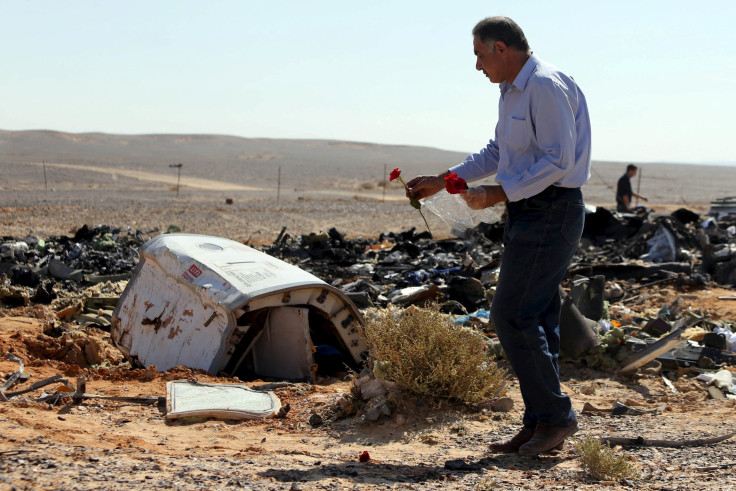Russia Plane Crash Update: Islamic State Did Not Down Plane, Says Egypt's President

As the investigation into the crash of a Russian passenger jet over Egypt continues, Egyptian President Abdel-Fattah el-Sisi said that any claims that the Islamic State group shot it down were “propaganda.” The president told the BBC Tuesday that it was still too early to know the cause of the Airbus 321 crash Saturday that killed all 224 people on board.
“When there is propaganda that it crashed because of ISIS, this is one way to damage the stability and security of Egypt and the image of Egypt,” el-Sisi said. “Believe me, the situation in Sinai -- especially in this limited area -- is under our full control.”
Egypt has fought Islamic militants in the area for several years with the group Sinai Province pledging its allegiance to ISIS. U.S. officials said it was “unlikely” that a terrorist group such as ISIS had shot down the plane but that they would not rule out the possibility.
Egypt’s authorities said they expected the crash-site search to be completed by Tuesday evening, Reuters reported. Debris from the plane that was taking many vacationers back to St. Petersburg was spread across approximately two miles.

Multiple theories have emerged over what caused the Oct. 31 crash of the Airbus over the Sinai Peninsula. Russian airline Kogalymavia said that “external forces” were to blame for the crash and denied allegations that the plane had any mechanical or technical failings and also ruled out pilot error.
“Under no circumstances must it appear that it was a technical fault,” said Russian historian Martin McCauley speaking with International Business Times. “That would reflect Russian incompetence.”
Russia’s government has called for a thorough investigation of the crash and has said any theories directing blame remained “premature.” Alexander Bastrykin, head of the Russian Investigative Committee, arrived in Cairo Tuesday. Bastrykin was expected to visit the crash site Wednesday, according to a report from Russia’s TASS news agency.
Egypt’s aviation ministry said Tuesday there was no proof the plane broke up while in midair and that no distress call was received from the pilot before the crash. Investigators were set to begin examining the plane’s black box flight recorders.
“This could be a long process and we can’t talk about the results as we go along,” said Mohamed Rahmi, spokesman for Egypt’s aviation ministry.
© Copyright IBTimes 2025. All rights reserved.






















